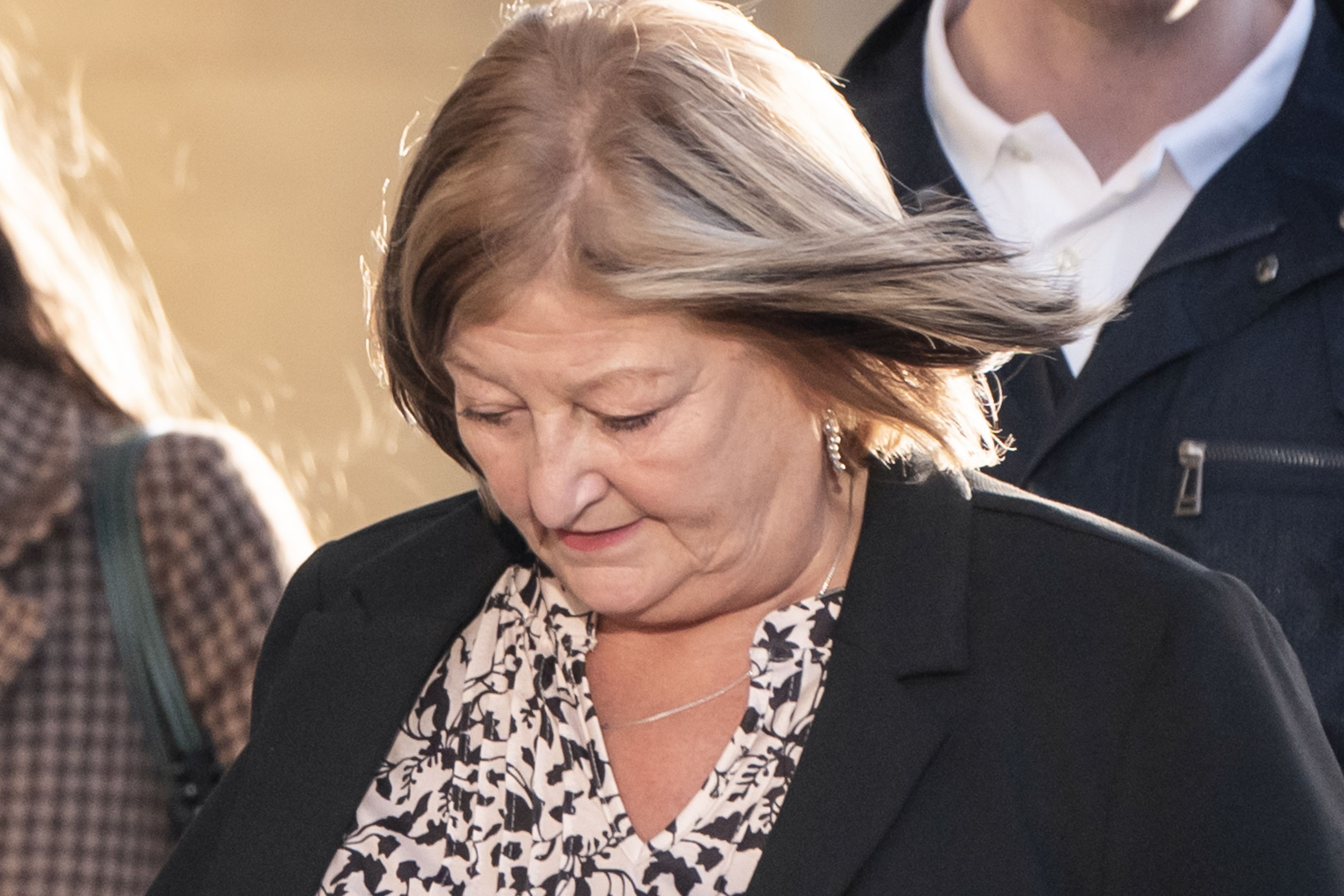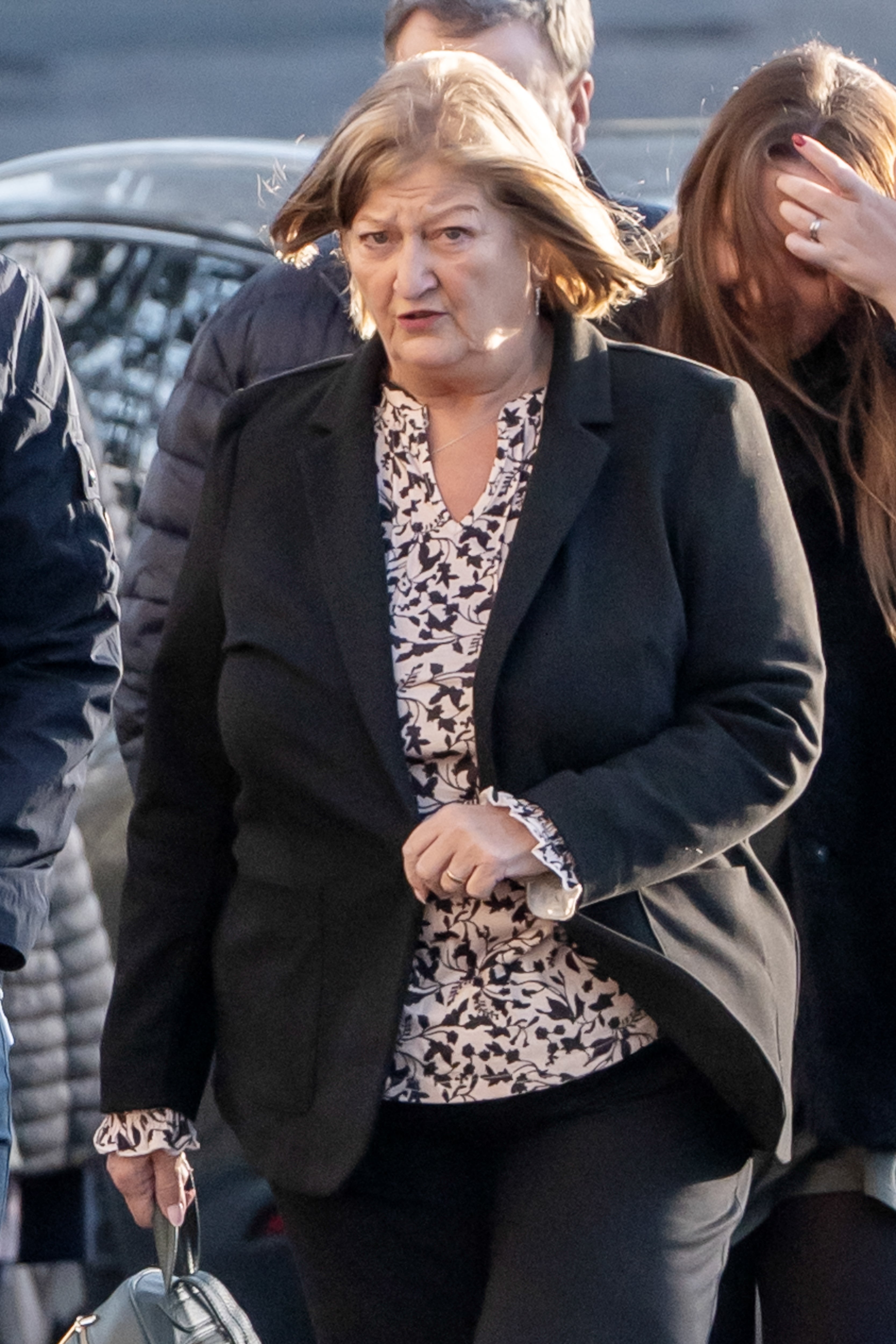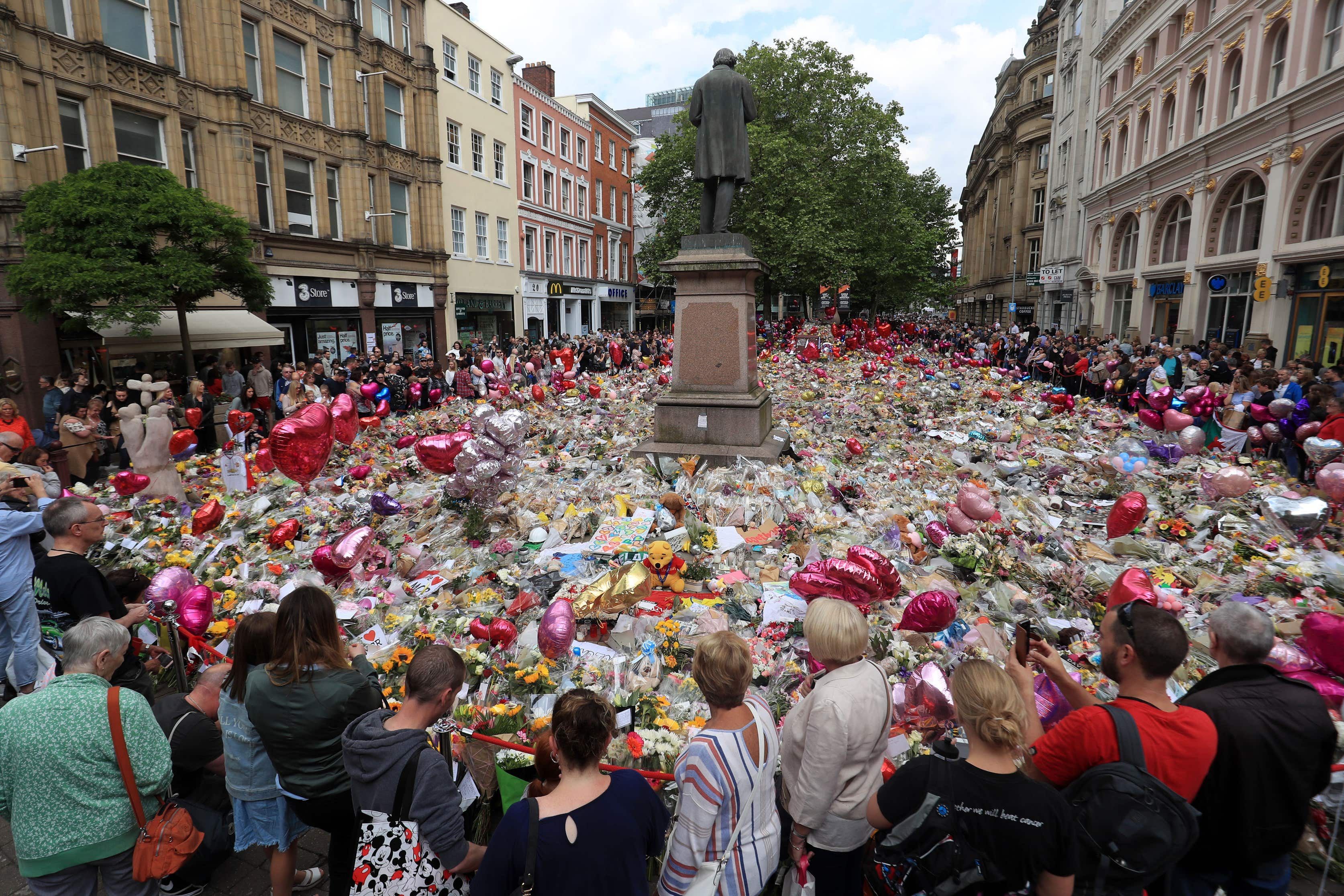Woman caused death of Manchester Arena bomb hero while overtaking cyclist
Darron Coster died three months after telling a public inquiry how he used his military police training to help survivors

A carer was overtaking a cyclist on a rural road when she caused the death of an ex-military policeman hailed a hero for helping injured victims of the Manchester Arena terror attack, a court heard.
Jacqueline Higson, 65, crossed into the opposite carriageway when she hit motorcyclist Darron Coster and knocked him off his bike, causing unsurvivable injuries.
Bradford Crown Court heard Higson performed the “unwise” manoeuvre at the crest of an “undulating” road in North Yorkshire when she could not see what was coming in the opposite direction.
Ex-serviceman Mr Coster, 54, died three months after giving evidence to a public inquiry where he described using his military police training to assist casualties in the aftermath of the Manchester Arena bombing.
He had gone to pick up his son and his son’s friends after the Ariana Grande concert that night in May 2017.

On Tuesday, Higson, of Robinson Street in Chatburn, Lancashire, was given a suspended prison sentence after she pleaded guilty to causing Mr Coster’s death by careless driving.
The court heard the crash happened on July 14 2021 on Jack Lane – a stretch of road linking the villages of Rathmell and Wrigglesworth.
Higson was driving her brother and aunt to lunch and Mr Coster was test driving a Ducati motorcycle he was considering buying.
Prosecutor Harry Crowson said before the crash, a cyclist described being overtaken by Higson, who passed slowly and gave him plenty of room.
He told the court she performed another overtaking manoeuvre and pulled out into the opposite carriageway, “unfortunately coinciding with a crest in the road”.
Mr Crowson said: “Darron Coster had no time to react or even see the defendant’s vehicle.
“A collision report details that as the sole cause of the accident – Jacqueline Higson being on the wrong side of the road.
“(She) pulled out at a time when she could not see what was coming in the opposite direction.”
A victim impact statement from Mr Coster’s wife Alison Coster said the couple had married when she was 22 years old and he was “her whole world”.
The statement, read in court, said: “He was my backbone and without him, every day has felt like an uphill battle since.”
Mrs Coster said their son Charlie, who was 24 at the time, now has a one-year-old son of his own – a grandson Mr Coster “never met and will never meet”.
Mr Coster’s sister Deborah Coulson said his death was “the direct result of a choice made by Jacqueline Higson, and the choice she made took away my brother”.
Jon Dye, defending Higson, said she was “absolutely devastated to be here” but “accepts her suffering is incomparable with the suffering of the family”.

Mr Dye said Higson, who sobbed in the dock throughout the hearing, “made a misjudgement” but that apart from the “extremely unwise” manoeuvre, “everything else in terms of her driving that day was sensible”.
He told the court Higson had been a carer for 37 years and was described in character references as “a good, caring person”.
Judge Jonathan Rose, the Recorder of Bradford, sentenced Higson to 12 months in prison, suspended for two years, banned her from driving for two years and ordered her to carry out 180 hours of unpaid work and 20 rehabilitation activity days.
He said: “(Mr Coster) was riding in a careful and responsible manner – he had no reason to believe he would be in any danger from a vehicle on his side of the road.
“The outcome was perhaps inevitable and certainly tragic.”
Mr Coster died three months after giving evidence to a public inquiry into the Manchester Arena attack, with the chairman of the inquiry Sir John Saunders announcing the “very sad news” during one of the hearings.
During his evidence, Mr Coster, who retired from the Royal Military Police in 2008 after 22 years, said he had served tours of Northern Ireland, so was familiar with the aftermath of bomb explosions and had basic first aid training.
Mr Coster made several laps of the room to assist people. He used a man’s belt and a woman’s handbag strap as tourniquets to stem the bleeding of a couple who had suffered leg injuries and then helped a young man with serious facial and torso injuries.
After Mr Coster’s death, Sir John said: “I described him at the conclusion of his evidence as a hero for what he did on the night of May 22 2017 and I don’t think that anyone could or would disagree with that description.”
He went on to say: “His actions on May 22 will live on in the memories of many.”
Bookmark popover
Removed from bookmarks